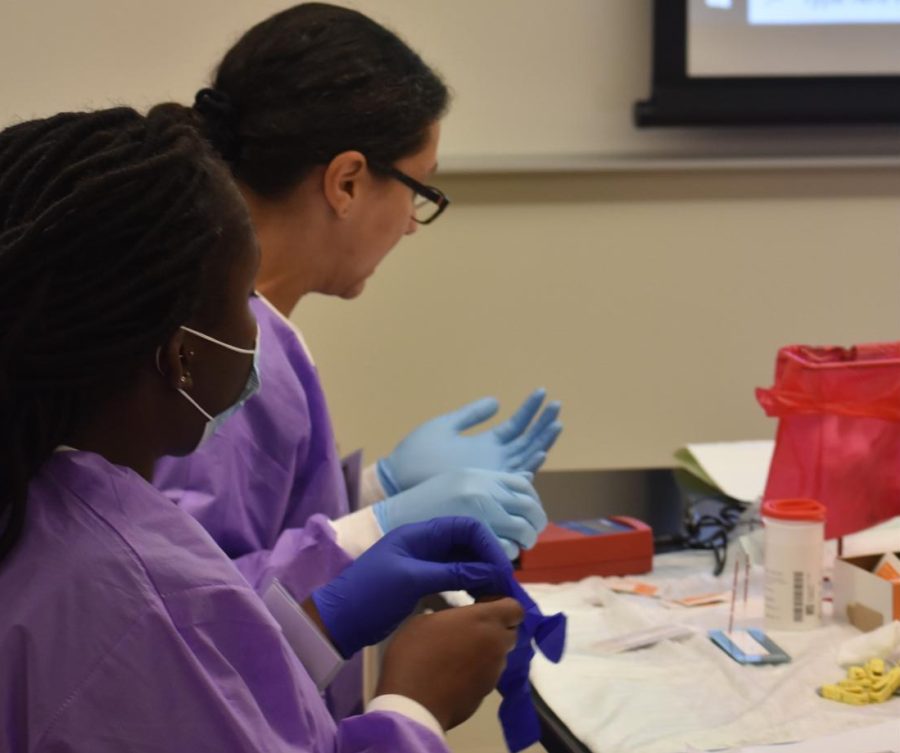AACC officials report no monkeypox cases
Campus administrators say students and faculty who test positive for monkeypox need to report their results to the college and stay off campus. Shown, medical students put on protective gear during class.
September 29, 2022
College officials have received no reports of monkeypox from students, faculty or staff, they said in September.
Those who suffer from monkeypox symptoms, including fever,chills, body aches, headaches, or sores or rashes should seek medical testing and treatment, according to Dean of Student Development Deneen Dangerfield. Those with a monkeypox diagnosis should fill out the same reporting form they would use if they tested positive for COVID-19.
The college asks those who test positive for monkeypox to stay away from campus until their doctors clear them to return.
“Once they are clear to return, they are to provide medical documentation from that provider,” Dangerfield said. “That gives them permission to return to on-campus activities.”
Students may be able to take their classes virtually if they cannot come to campus, according to the AACC website.Likewise, faculty and staff who test positive may be able to telework, the website explained.
Some students said the college should be doing more to warn them of the risks of the virus, which has stricken nearly 25,000 people nationwide, more than 600 in Maryland and approximately 15 to 20 in Anne Arundel County, according to the Centers for Disease Control and Prevention.
Second-year nursing student Susmita Regmi said AACC should spread awareness about the virus so students don’t ignore it.
“It definitely needs more spotlight shining to it … because I don’t think people know enough about monkeypox yet,” Regmi said.
“Send a brochure or something,” Regmi added. “That’s the best [thing] we can try at this point because a lot of people are just kind of like blocking it out.”
Regmi said students might not take the risks seriously because they are “scared that it’s going to blow up like coronavirus and then we’re going have to go through another lockdown.”
In fact, monkeypox infections are rare, according to the Anne Arundel County Department of Health. It spreads through prolonged, close contact with someone who is inflected, like through kissing, sex, or sharing a bed or unwashed clothes or towels. Most monkeypox patients so far are sex workers, those who have anonymous sex and men who have sex with men, according to the Department of Health..
The virus is not spread through casual conversations, walking by other people or touching doorknobs or other items, according to the department.
Monkeypox usually resolves on its own, according to the department. No treatment exists but those at high risk can get vaccinated.
Third-year radiology student Malachi Thoms said he worries about catching the virus less since he learned more about it.
“At first I was kind of worried because [I thought] it could be transferred if I were to just like touch this surface,” Thoms said, “and then my worries kind of died down because I don’t hear a lot about it anymore.”
Thoms said college should do more to let students know how to prevent and identify monkeypox by “keeping students [informed], tell[ing] them to keep clean and if they’re sick, stay home.”












